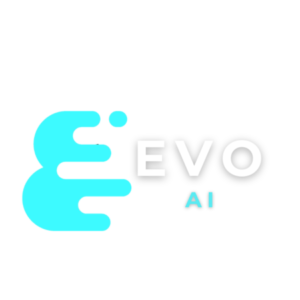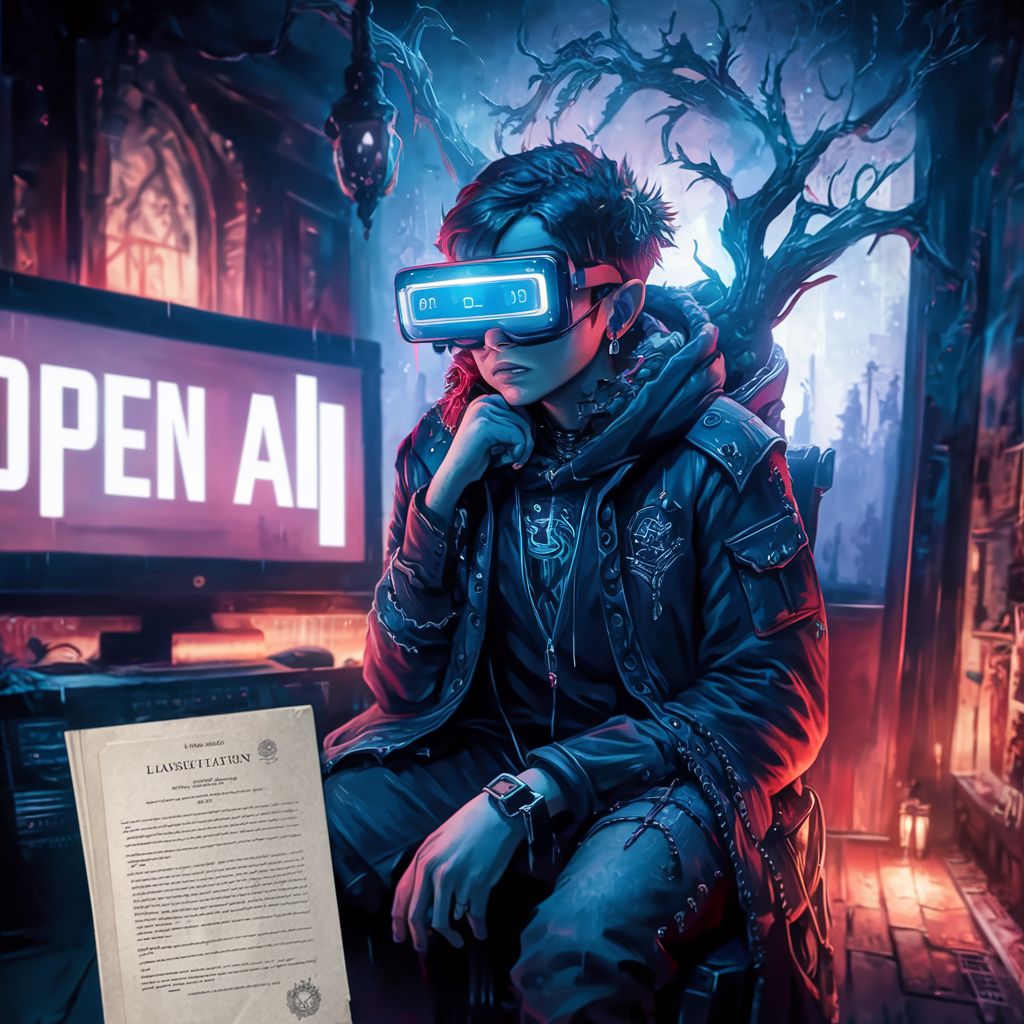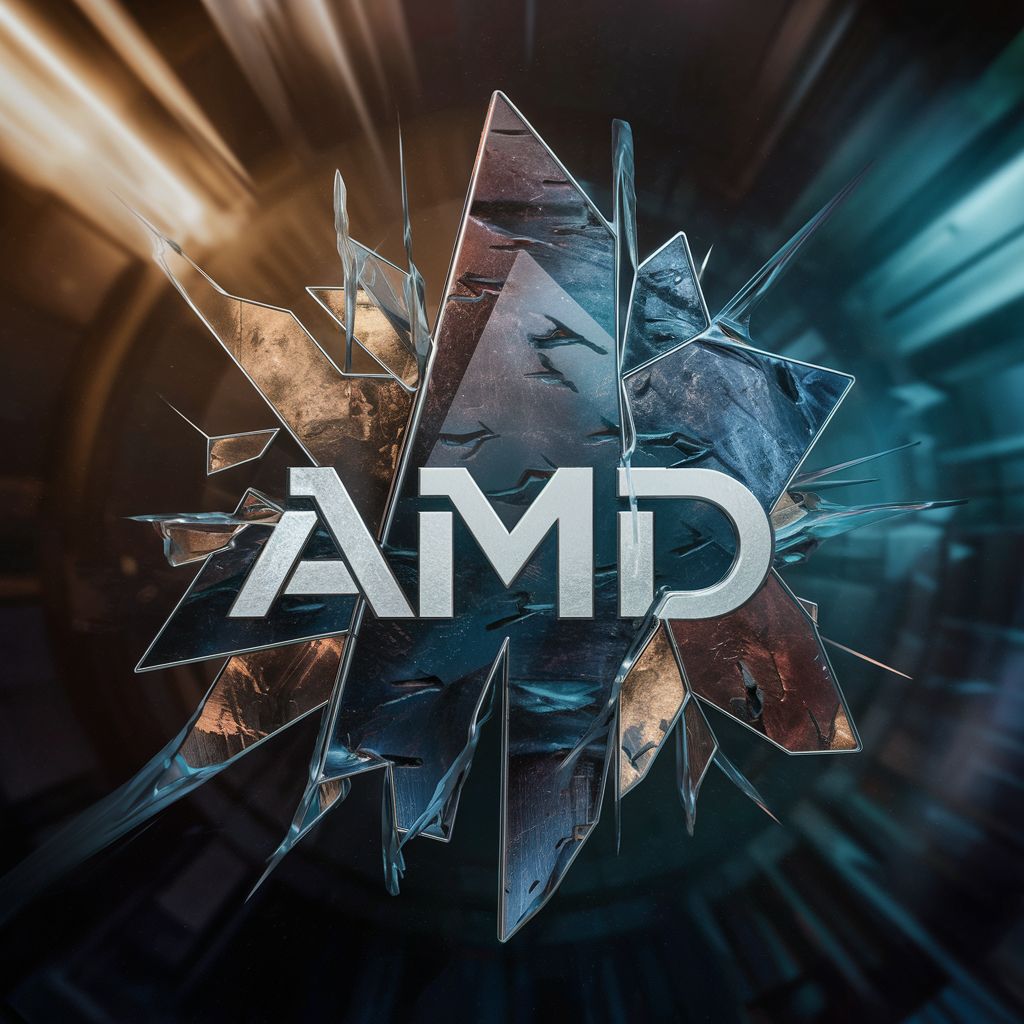
Anthropic Introduces Claude 3 Series: Elevating AI with Unparalleled Cognitive and Multilingual Capabilities
Other AI News
-
Inscribe.ai Cuts Workforce by 40% Amid Strategic Pivot and Market Challenges
Inscribe, an AI-powered fraud detection software provider, has recently announced a significant reduction in its workforce, laying off just under 40% of its staff across various departments, primarily affecting go-to-market and operational roles. This decision comes as the company, known for its platform that aids in detecting fraud in sectors such as business underwriting, tenant screening, and onboarding, faces challenges in meeting its revenue goals for over a year. The layoffs at Inscribe follow a similar move by Turnitin, another AI-powered service, highlighting a trend of job cuts in the AI sector despite previous predictions that AI advancements would allow companies to streamline operations and reduce headcount.
The San Francisco-based company, Inscribe.ai, confirmed the layoffs, attributing the decision to a need for a strategic pivot in response to the evolving AI landscape in the financial services industry. According to Inscribe’s CEO and co-founder, Ronan Burke, the company is adjusting to significant industry shifts, including higher interest rates and the unpredictable future facing consumers and businesses in the fintech sector. Inscribe is planning a major product launch later this year, aimed at aligning with these changes and capitalizing on the opportunities presented by AI advancements for improved customer experiences and more efficient processes. Prior to the layoffs, Inscribe had raised $25 million in Series B funding in January 2023, with plans to double its workforce, highlighting the abrupt shift in the company’s trajectory.
-
Insilico Medicine Breakthrough: Launching the First AI-Designed Drug into Phase II Trials
Insilico Medicine, a biotech startup based in Hong Kong and New York, has made a groundbreaking announcement in a new paper published in Nature Biotechnology. The company, which has raised over $400 million, has developed what it claims to be the first AI-generated and AI-discovered drug, INS018_055, now in Phase II clinical trials. This drug, aimed at treating idiopathic pulmonary fibrosis—a rare and aggressive lung disease—was discovered and designed using Insilico’s AI platform. The platform employs generative AI for both identifying the drug target through its PandaOmics tool and designing the molecule with its Chemistry42 engine, showcasing the potential of AI in revolutionizing drug discovery and development processes.
The development of INS018_055 not only marks a significant achievement in the field of AI-driven drug discovery but also demonstrates the efficiency and speed of using AI in this domain. According to Insilico’s founder and CEO, Alex Zhavoronkov, traditional drug discovery methods could take decades and cost billions of dollars with a high failure rate. However, by leveraging generative AI, Insilico was able to reach the first phase of clinical trials in just two and a half years, significantly reducing both the time and cost involved. This achievement is seen as a proof-of-concept for Insilico’s Pharma.AI platform and sets a precedent for the future of drug discovery, highlighting the transformative potential of AI in creating more efficient and effective medical treatments.
-
Abacus AI Unveils ‘Liberated Qwen’: The Unrestricted LLM Committed to Following System Directives
Abacus AI has introduced an innovative open-source large language model (LLM) named Liberated-Qwen1.5-72B, setting a new standard in the AI field by ensuring strict adherence to system prompts in all scenarios. This model, based on the transformer-based decoder-only language model Qwen1.5-72B developed by Alibaba Group researchers, represents a significant leap forward in making LLMs more reliable and suitable for real-world applications. Unlike other open-source LLMs, Liberated-Qwen1.5-72B’s strict compliance with system prompts makes it an ideal choice for enterprises looking to deploy customer-facing chatbots and other AI-driven services without the risk of the AI deviating into unintended directions.
The development of Liberated-Qwen1.5-72B was achieved by fine-tuning the original Qwen1.5-72B model with a new open-source dataset called SystemChat, consisting of 7,000 synthetic conversations. This dataset trained the model to follow system prompts accurately, even when it contradicts user requests, making it much harder to manipulate or “jailbreak” the AI. Abacus AI’s CEO, Bindu Reddy, touts it as the world’s best and most performant uncensored model that strictly follows system instructions. However, it’s important to note that the model is entirely uncensored and lacks built-in guardrails, meaning it will respond to all queries, including sensitive topics, while adhering to system prompts. As such, Abacus advises users to implement their own alignment layer before deploying the model as a service. This groundbreaking model is available under a license similar to MIT, with plans for future enhancements and the release of more capable models.
-
Inflection AI’s New Model Elevates Pi Chatbot to Rival GPT-4’s Capabilities
Inflection AI, co-founded by DeepMind’s Mustafa Suleyman and LinkedIn’s Reid Hoffman, has made a significant leap in the AI domain with the introduction of its new foundation model, Inflection-2.5. This model, which powers the company’s Pi assistant, is designed to compete with leading AI chatbots like ChatGPT and Gemini. Inflection-2.5 has shown remarkable performance, nearly matching that of OpenAI’s GPT-4, especially in STEM subjects. This advancement is part of Inflection AI’s broader effort to challenge OpenAI’s dominance in the AI space, following closely on the heels of Anthropic’s Claude 3 Opus, which recently outperformed GPT-4.
Inflection-2.5 not only surpasses the company’s original model, Inflection-1, in performance but also brings a unique blend of empathy and utility to AI interactions. The model has been fine-tuned to exhibit a high emotional quotient (EQ), providing users with a more personal and colloquial experience. Despite its impressive capabilities, Inflection-2.5 still slightly lags behind GPT-4 in benchmarks but demonstrates substantial improvements over its predecessor across various metrics. Notably, it achieved 94% of GPT-4’s performance level with only 40% of the training compute, showcasing its efficiency. Additionally, like GPT-4, Inflection-2.5 incorporates real-time web search capabilities, offering users up-to-date information. The Pi assistant, powered by this advanced model, is available on multiple platforms, including mobile, web, and desktop, and has already seen significant user engagement and growth.
-
Hugging Face Dives into Robotics with Open-Source Project Headed by Ex-Tesla Scientist
Hugging Face, a New York City-based startup renowned for its open-source machine learning and AI code repository, is venturing into new territory with the launch of an open-source robotics project. This initiative is led by Remi Cadene, a former staff scientist at Tesla, marking a significant shift from Hugging Face’s traditional focus on software to the realm of hardware. The project aims to develop low-cost, open-source robotic systems that integrate advanced AI technologies, particularly in deep learning and embodied AI. This move is not only a major departure for Hugging Face but also a playful jab at OpenAI, emphasizing the project’s open-source nature in contrast to OpenAI’s approach.
The robotics project seeks to push the boundaries of what’s possible in robotics and AI by designing, building, and maintaining robotic systems that are both affordable and accessible. These systems will utilize off-the-shelf electronic components, controllers, and 3D printed parts, making advanced robotics more attainable for a wider audience. The initiative reflects a growing interest in the tech industry towards embodied AI, which aims to transition AI from digital screens to physical machines capable of autonomously navigating the world and assisting humans with various tasks. With this ambitious expansion, Hugging Face is positioning itself at the forefront of the intersection between AI and robotics, signaling a new era of innovation in open-source robotics led by a team with a strong background in both software and hardware development.
-
OpenAI to Challenge Musk’s Lawsuit, Defends Shift from Non-Profit Roots
OpenAI has responded to a lawsuit filed by its former co-founder, Elon Musk, with a firm stance, planning to dismiss all claims made against the company. The lawsuit accuses OpenAI of deviating from its original non-profit mission and principles, particularly criticizing the organization for keeping the internal design of GPT-4 closed and private, accessible only to OpenAI and Microsoft. In a detailed blog post, OpenAI’s leadership, including President Greg Brockman, Chief Scientist Ilya Sutskever, CEO Sam Altman, and others, shared their perspective, supported by redacted emails that suggest Musk was aware of and did not oppose the idea of OpenAI forming a for-profit entity to secure the necessary funding for its ambitious goals.
The blog post and accompanying emails aim to clarify the circumstances surrounding OpenAI’s transition to a capped-profit model, highlighting Musk’s initial support for raising significant funding to compete with major tech giants in the AI space. Despite the legal dispute, OpenAI emphasizes its continued commitment to advancing artificial general intelligence (AGI) in a way that benefits humanity, pointing to its achievements and the positive impact of its technologies worldwide. The situation underscores the complexities of funding and executing cutting-edge research in the rapidly evolving field of AI, as well as the challenges of maintaining original visions and agreements among founders with diverging paths.
-
Accenture and Cohere Forge Partnership to Drive Generative AI Adoption in Global Enterprises
Accenture, a global consulting powerhouse, has announced a strategic partnership with Cohere, a leading enterprise AI startup, to bring advanced generative AI capabilities to businesses worldwide. This collaboration aims to leverage Cohere’s proprietary large language models (LLM) and search technologies, including Command, Embed, and Rerank, to enhance productivity and efficiency across various industries. By combining Accenture’s deep industry knowledge and cloud infrastructure with Cohere’s AI technology, the partnership is set to offer enterprise clients tailored AI solutions that prioritize data privacy and security.
The partnership has already demonstrated early success, with Cohere’s Command model powering a knowledge agent for Accenture’s Finance and Treasury teams, showcasing the potential to significantly improve decision-making and operational efficiency. Cohere’s technology, particularly its Retrieval Augmented Generation (RAG) capabilities, addresses common AI challenges such as hallucinations by incorporating real-time information from diverse data sources into AI-generated content. As the demand for scalable, enterprise-grade generative AI solutions grows, Accenture’s $3 billion investment in AI and its vast client network, combined with Cohere’s innovative technology, position the partnership to capture a significant share of the expanding market. This move underscores the intensifying competition in the enterprise AI space, with major tech companies and startups alike vying to deliver transformative AI solutions to businesses.
-
Haiper Launches with Vision to Create AGI for Advanced Video Generation
Haiper, a new AI video startup, has recently emerged from stealth mode, announcing a significant $13.8 million seed funding round led by Octopus Ventures. Founded by former DeepMind researchers Yishu Miao and Ziyu Wang, Haiper is based in London and aims to revolutionize the AI video generation landscape. The startup offers a platform that enables users to create high-quality videos from text prompts or animate existing images, leveraging its proprietary visual foundation model. Despite early comparisons, Haiper’s current offerings still seem to lag behind OpenAI’s Sora in terms of capabilities. However, with the fresh funding, Haiper plans to scale its infrastructure and enhance its product, with the ambitious goal of developing an Artificial General Intelligence (AGI) with full perceptual abilities.
Haiper’s platform provides users with tools to generate videos in both SD and HD quality, with current limitations on the length of HD content. The company aims to address common issues in AI-generated videos, such as blurriness and inconsistent subject representation, especially in videos with higher levels of motion. Beyond text-to-video features, Haiper allows users to upload and animate existing images or modify a video’s style and elements through text prompts. The startup envisions a wide range of applications for its technology, from social media content creation to professional studio use, and plans to iterate on user feedback to release large trained models that improve AI video output quality. Ultimately, Haiper’s goal is to build an AGI that can understand and replicate the emotional and physical elements of reality, potentially impacting various domains beyond content creation, such as robotics and transportation.
-
AMD Launches Next-Gen Spartan UltraScale+ FPGAs for Enhanced Edge Computing
AMD has unveiled its latest innovation in the field of programmable logic chips, the Spartan UltraScale+ FPGAs, targeting edge applications. Emerging from AMD’s acquisition of Xilinx, these chips are designed to meet the demands of cost-sensitive edge applications across various industries, including embedded vision, healthcare, industrial networking, robotics, and video applications. The Spartan UltraScale+ chips are celebrated for their high input/output (I/O) counts, power efficiency, and advanced security features, marking a significant advancement in FPGA technology.
Built on a 28-nanometer manufacturing process, the Spartan UltraScale+ devices boast the industry’s highest I/O to logic cell ratio, offering up to 30% lower power consumption and enhanced performance compared to their predecessors. These FPGAs are engineered for edge computing applications, providing flexible interfaces and high I/O counts for seamless integration with multiple devices or systems. With up to 572 I/Os and support for voltages up to 3.3V, they enable versatile connectivity for edge sensing and control applications. The chips also feature a hardened LPDDR5 memory controller and PCIe Gen4 x8 support, leveraging 16nm FinFET technology for power efficiency and future-ready capabilities.
Security is a key focus for the Spartan UltraScale+ FPGAs, incorporating Post-Quantum Cryptography with NIST-approved algorithms and a physical unclonable function for enhanced IP protection and device security. Additional security measures include PPK/SPK key support for managing security keys, differential power analysis protection, and a permanent tamper penalty to deter misuse. The AMD Vivado Design Suite and Vitis Unified Software Platform support the Spartan UltraScale+ family, offering a comprehensive toolset for hardware and software designers. The Spartan UltraScale+ FPGA family is expected to be available for sampling and evaluation in the first half of 2025, with tool support commencing in the fourth quarter of 2024.
-
Snowflake and Mistral AI Forge Partnership to Elevate Open LLMs in the Data Cloud
Snowflake has announced a multi-year partnership with Mistral AI, a Paris-based AI startup known for raising Europe’s largest-ever seed round and rapidly becoming a key player in the global AI domain. This collaboration aims to integrate all open large language models (LLMs) developed by Mistral into Snowflake’s data cloud, making them readily accessible to customers for building LLM applications. Snowflake is also investing in Mistral through its corporate venture capital arm, although the investment amount remains undisclosed. This partnership signifies a major endorsement for Mistral, highlighting its aggressive expansion and rapid development of models that rival those from OpenAI, Anthropic, and Google.
The Snowflake-Mistral deal is expected to significantly enhance Snowflake’s offerings in the Data Cloud, particularly with the introduction of Cortex, a fully managed service designed for building LLM apps using data stored on the platform. With the addition of Mistral’s models, including the highly performant Mistral Large, Snowflake aims to provide its customers with cutting-edge, AI-powered applications. These applications are expected to be secure, private, and governed within Snowflake’s ecosystem, addressing a wide range of business-specific use cases. This partnership not only strengthens Snowflake’s position in the AI and analytics space but also expands Mistral’s reach and influence in the industry, marking another step forward in the startup’s growth and the broader adoption of AI technologies across sectors.
-
Dell and CrowdStrike Forge Alliance to Advance AI-Driven Cybersecurity Solutions
Dell and CrowdStrike have announced a strategic partnership aimed at bolstering cybersecurity defenses for businesses by integrating AI technologies to protect against a range of cyber threats, including generative AI, social engineering, and endpoint attacks. Dell is enhancing its managed detection and response (MDR) service by incorporating CrowdStrike’s Falcon extended detection and response (XDR) platform. This collaboration leverages XDR platforms’ ability to aggregate and analyze data across various sources in real-time, offering significant improvements in attack detection and response. By providing Dell’s global base of resellers with access to AI-based technologies through CrowdStrike’s XDR platform, the partnership aims to offer customized services that address the evolving landscape of cyber threats.
The urgency for such advanced cybersecurity measures is underscored by the rise in sophisticated cyberattacks, including those utilizing generative AI for financial fraud and deepfake technologies. With 75% of attacks being malware-free and increasingly difficult to detect, the partnership between Dell and CrowdStrike represents a proactive approach to enhancing security measures. CrowdStrike’s Falcon platform, known for its breach-stopping capabilities, combined with Dell’s extensive reseller network, aims to deliver a powerful, AI-driven security solution. This collaboration not only signifies a significant step forward in the fight against cyber threats but also highlights the growing importance of AI in developing effective cybersecurity strategies.
-
Amazon Integrates Anthropic’s Advanced Claude 3 Models into AWS Bedrock, Surpassing GPT-4
Amazon has made a significant move in the generative AI space by integrating Anthropic’s new large language model, Claude 3, into its AWS platform, Bedrock. This development positions Claude 3, which outperforms OpenAI’s GPT-4 and Google’s Gemini Advanced in benchmark tests, as a leading AI model available for cloud services. Anthropic, a San Francisco-based startup, has introduced three variants of Claude 3—Opus, Sonnet, and Haiku—with varying levels of intelligence and capabilities. These models, trained on synthetic data, aim to address concerns about model collapse and offer a more robust foundation for AI-driven applications. Amazon’s Bedrock service, which provides a unified API for accessing multiple AI models, will initially offer Claude 3 Sonnet to its customers, with plans to add Opus and Haiku soon.
This partnership between Amazon and Anthropic, backed by Amazon’s $4 billion investment in the startup, underscores the intense competition and rapid innovation within the cloud and AI industries. Despite the FTC’s scrutiny of such massive investments for potential anticompetitive practices, Amazon continues to expand its AI offerings on Bedrock, including models from various providers like AI21 Labs, Cohere, Meta, and Mistral. The addition of Claude 3 to Bedrock highlights Amazon’s commitment to leading in generative AI by enabling customers to build advanced applications with ease, security, and responsibility. This move is part of AWS’s broader strategy to dominate the generative AI market by investing across the entire AI stack, from infrastructure to user-facing applications.
-
Ema Secures $25M to Launch AI-Driven ‘Universal Employee’ for Enterprises
Ema, a San Francisco-based startup, has emerged from stealth mode with an ambitious vision to revolutionize the workplace through generative AI. With a $25 million investment from a roster of notable backers, Ema aims to create a “universal AI employee” designed to automate mundane tasks across various enterprise domains, thereby freeing human employees to focus on more strategic and valuable work. The startup has already garnered attention and customers, including Envoy Global, TrueLayer, and Moneyview, showcasing its potential to transform how businesses operate. Ema’s products, the Generative Workflow Engine (GWE) and EmaFusion, are engineered to emulate human responses and improve with usage and feedback, promising a new level of efficiency and productivity in customer service and internal productivity applications.
The founders, Surojit Chatterjee and Souvik Sen, bring a wealth of experience from their previous roles at Coinbase, Google, and Okta, contributing to Ema’s credibility and innovative approach. Ema’s technology leverages over 30 large language models, supplemented by its own domain-specific models, to address common issues like accuracy and data protection in AI applications. This early funding round, led by Accel, Section 32, and Prosus Ventures, along with participation from other investors and notable individuals like Sheryl Sandberg and Dustin Moskovitz, underscores the industry’s confidence in Ema’s potential. As generative AI continues to dominate tech discourse, Ema’s approach to creating versatile, AI-driven solutions for enterprises represents a significant step forward in the practical application of AI technologies.
-
Multiverse Computing Secures $27M to Pioneer Quantum Software Solutions for AI and Finance
Multiverse Computing, a startup based in San Sebastian, Spain, has successfully raised €25 million ($27 million) in an equity funding round led by Columbus Venture Partners, valuing the company at €100 million ($108 million). The startup specializes in applying quantum principles to manage complex computations across various sectors, including finance and artificial intelligence. With this funding, Multiverse aims to expand its business, which currently collaborates with startups in manufacturing and finance, and to initiate new projects with AI companies focusing on large language models (LLMs). The core of Multiverse’s offering is optimization, aiming to make complex computations more efficient and manageable.
Multiverse’s software platform, Singularity, is designed to optimize modeling and predictive applications across industries such as finance, manufacturing, energy, cybersecurity, and defense. A notable focus for the company is the development of CompactifAI, a product aimed at compressing large language models to enhance the speed and reliability of AI-generated results. By leveraging “quantum-inspired tensor networks,” Multiverse claims it can compress LLMs by more than 80% while maintaining accuracy. This breakthrough could significantly impact how companies utilize processors and address current bottlenecks in the industry. The funding round also saw participation from previous backers like Quantonation Ventures and new investors, including the European Innovation Council Fund, Redstone QAI Quantum Fund, and Indi Partners, highlighting the broad interest in Multiverse’s quantum computing solutions.
-
Brevian Launches to Democratize AI Agent Creation for Enterprises with $9M Seed Funding
Brevian, a startup based in Sunnyvale, has emerged from stealth with a mission to simplify the creation of custom AI agents for business users, particularly focusing on support teams and security analysts. The company has announced a $9 million seed funding round to fuel its growth and development. Founded by Vinay Wagh and Ram Swaminathan, Brevian aims to address the challenges enterprises face in adopting AI by providing a no-code platform that enables users to build AI agents tailored to their specific needs. Initially concentrating on security and support, Brevian plans to broaden its scope to other domains, leveraging its platform to optimize complex computations and predictive applications across various industries.
Brevian’s approach to enterprise AI centers on security and the efficient building of systems that solve real-world problems. The startup has developed technologies to detect personally identifiable information and prevent prompt injection attacks, addressing key security concerns that hinder enterprise adoption of AI. With the backing of Felicis and other investors, Brevian is poised to expand its offerings and empower business users to harness AI for simplifying daily tasks. The seed funding will also support Brevian’s efforts to grow its team and further develop its product, aiming to make AI more accessible and practical for enterprises.
-
AI2 Incubator Secures $200M in Compute Resources to Boost Early-Stage AI Startups
The AI2 Incubator, an initiative spun out of the Allen Institute for AI in 2022, has recently secured a significant $200 million in compute resources to support AI startups within its program. This substantial investment aims to accelerate the development of these startups by providing them with the necessary computational power to train their models, which is often a major hurdle for early-stage companies. Jacob Colker, the managing director of AI2 Incubator, highlighted the desperate need for compute among the AI community, noting that many startups struggle to demonstrate early traction due to limited resources for model training beyond generic API options.
Startups participating in the AI2 Incubator’s portfolio or program are eligible to receive up to $1 million worth of dedicated AI-style compute at data centers operated by an unnamed partner, which possesses the capacity to offer such a substantial amount of resources. This partnership does not grant the provider any special access to the startups, except for potentially becoming their first major compute provider. This initiative is seen as a gesture of goodwill to help entrepreneurs achieve revenue more quickly. With a focus on pre-seed startups, the AI2 Incubator’s support could cover most compute needs, even for those developing new foundation models, offering dedicated machines and custom silicon. Since its independence in 2022, the AI2 Incubator has supported the creation of over 30 startups and aims to continue this mission with a recently raised $30 million fund.
About The Author

Bogdan Iancu
Bogdan Iancu is a seasoned entrepreneur and strategic leader with over 25 years of experience in diverse industrial and commercial fields. His passion for AI, Machine Learning, and Generative AI is underpinned by a deep understanding of advanced calculus, enabling him to leverage these technologies to drive innovation and growth. As a Non-Executive Director, Bogdan brings a wealth of experience and a unique perspective to the boardroom, contributing to robust strategic decisions. With a proven track record of assisting clients worldwide, Bogdan is committed to harnessing the power of AI to transform businesses and create sustainable growth in the digital age.








Leave A Comment